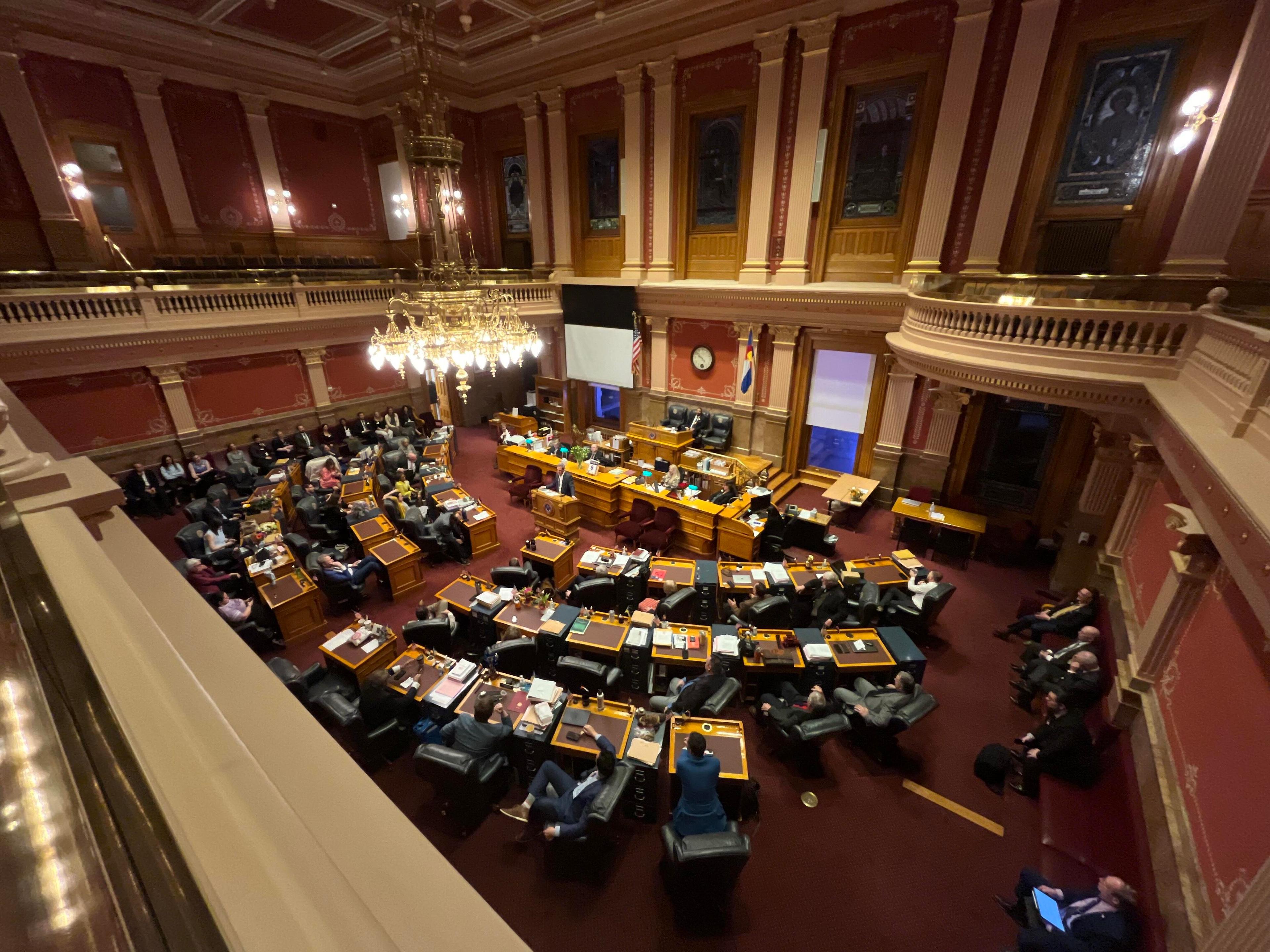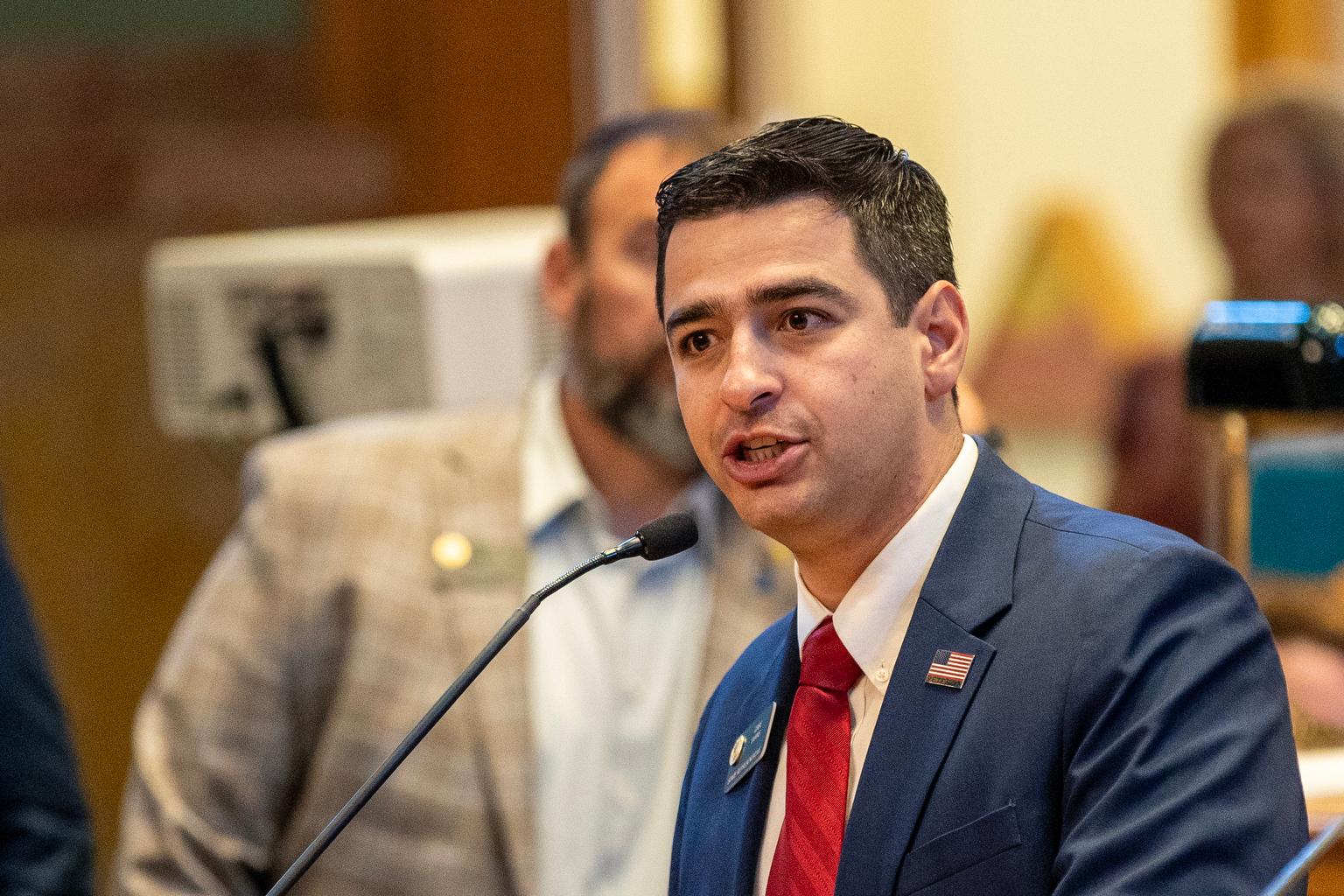

The #MeToo movement has reached a critical juncture at the Colorado Capitol.
Two women have filed formal complaints against Thornton Democratic state Rep. Steve Lebsock of sexual harassment. Nine others have made accusations, some anonymously. The allegations include claims he unbuttoned a blouse and asked a lobbyist for sex. Gov. John Hickenlooper and House Speaker Crisanta Duran, both Democrats, have called for his resignation.
Three other lawmakers also have come under under scrutiny. Formal complaints were filed against two Republican state senators. Duran dismissed sexual harassment complaint against Democratic Rep. Paul Rosenthal of Denver because the alleged incident happened before he was elected.
None of those cases have gained more attention than the accusations against Lebsock, first reported by KUNC last November. Lebsock is also a candidate for state treasurer.
The story centered on Democratic Rep. Faith Winter, who filed an official complaint against Lebsock after he tried to get her to leave a bar with him in 2016. When she refused, Winter recalls Lebsock became aggressive.
Winter went public after learning Lebsock had harassed other aides and lobbyists as recently as last summer.
“They did not have power and their career were more at risk,” Winter said. “I felt it was responsibility to come forward to make sure the behavior stopped.”
This all falls against the backdrop of lawmakers returning to Denver for the 2018 legislative session — the first time the assembly will have convened since the wave of sexual assault allegations rocked the statehouse.
Lebsock told CPR he is innocent and has no plans to step down.
“I think all of your listeners would agree that it’s inappropriate to call for someone’s resignation with no due process,” he said.
“Due process” has become favorite term for Lebsock. As allegations of sexual misconduct have shocked statehouses and the Congress, it has become a call to slow any rush to judgement.
But the term also speaks to a deeper reckoning for political institutions. Elected officials often aren’t sure what sort of process they are entitled to following allegations of misconduct. Accusers often do not know when, if ever, their allegations will lead to real consequences.
Democratic state Rep. Matt Gray has moved to make sure Lebsock will be punished and has drafted legislation to remove him.
“Due process I believe very much in and we should get as much as we can. But when we get as much information as is available, eventually you have to make a decision,” he said.
Gray’s resolution would require a two-thirds vote of the Colorado House to be successful. Passage would mark the first time a lawmaker had been expelled from the assembly since 1915, according to legislative staff.
The problem for Gray is when to introduce the resolution. Official complaints against Lebsock have triggered an independent investigation. Gray said he can wait a few weeks for a conclusion, but is worried it could drag on for months.
“Eventually, I would decide the risk, the basic unfairness of making these women interact with Rep. Lebsock would take over,” he said. “We could have the conversation based on public statements.”
The Employer’s Council, a private legal firm, is leading the statehouse inquiry.
House Majority Leader K.C. Becker is the firm’s contact within the legislature. Since the investigation is independent and confidential, she said she can’t say exactly when it will end. She hopes for an conclusion within two weeks.
Maya Raghu, director of workplace equality at the National Women’s Law Center, said the predicament shows a common problem with investigations of workplace harassment: they often lack a transparent timeline.
“[A timeline] insures the process keeps moving forward and isn’t delayed for invalid reasons, because someone just doesn’t want to make a decision or is putting of holding someone accountable,” she said.
There’s another reason for a timeline: she said it discourages both accusers and the accused from taking action on their own.
In December, Lebsock used his uncertainty about the investigation to justify a bold move. He said he had waited 26 days before being contacted by the fact finder. As a result, he decided to make his case to the press by releasing a lie detector test.
The test assessed his answers about the incident with Rep. Winter. They tested specific points of her story, like whether Lebsock grabbed her elbow as he attempted to get her to leave the bar in 2016.
The polygraph examiner, whom Lebsock paid, asked him if that was ture. According to a report he provided, his answer of “no” checked out.
“That was the truth,” he told reporters. “I was telling the truth. And the polygraph proves it.”
Scientists have long raised doubts about the accuracy of polygraphs. Results are also inadmissible in court.
Lebsock has also made personal attacks against Winter. He has repeatedly called her a liar. More recently, he told CPR that Winter came onto him at a Democratic retreat and invited him into a hot tub. At another point, he said Winter shared intimate details about her marriage with him.
Winter responded that those accusations were wild misrepresentations.
“He has tried the apology. He has tried denial. He has tried everything else and now he’s taking the next step bullies take into victim blaming,” said Winter. “I just want it to stop.”
Still, Winter agrees with her legislative leaders that any vote to remove Lebsock should wait until the end of the official investigation.
Editor's Note: This story has been updated to clarify the count of individuals making accusations anonymously versus on the record against Rep. Steve Lebsock.









